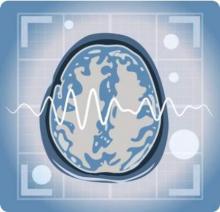Schizophrenia is associated with memory deficits and decreased hippocampal and dorsolateral prefrontal cortex activation, according to a study recently published in JAMA Psychiatry.
Concentrating on relationships between objects (relational encoding) or specific features of objects (item-specific encoding) may help long-term memory. The prefrontal cortex (PFC) and medial temporal lobe (MTL) are involved with these types of memory encoding. But relational memory may be impaired in individuals with schizophrenia.
The researchers, led by J. Daniel Ragland, Ph.D., from the department of psychiatry at the University of California, Davis, sought to use an adapted Relational and Item-Specific Encoding (RiSE) paradigm with functional MRI (fMRI) with the goal of highlighting the role of MTL subregions in retrieval and PFC subregions in encoding. Likewise, the investigators sought to test whether MTL and PFC subregions are affected in schizophrenia with impairment in relational memory but not item-specific memory.
In a multicenter study, data was obtained from November 1, 2010 through May 30, 2012. After excluding patients for excess movement, image acquisition errors, and below-chance performance, data was obtained from 52 schizophrenic outpatients and 57 healthy controls (JAMA Psychiatry 2015, July 22 [doi:10.1001/jamapsychiatry.2015.0276].
Patients with schizophrenia were characterized as having less education but were clinically stable with only mild symptoms and were on a fixed medication dose. Study participants were randomly presented with pictures of paired objects and asked questions to assess item-specific encoding, relational encoding, recognition, and associative recognition. The participants were scanned using fMRI for about 22 minutes.
Compared to the healthy controls, the schizophrenic patients demonstrated impairment in item recognition (P < 0.03). Likewise, during relational encoding, schizophrenic patients were found to have reduced activation in the dorsolateral PFC (P < 0.05) compared to healthy controls.
Hippocampal (HI) activation was demonstrated during retrieval success while healthy controls were completing associative recognition and relational item recognition activities. However, schizophrenic participants demonstrated reduced HI activation during relational item recognition activities. This association was not observed in item-specific activities (P < 0.05).
The results highlight memory deficits for relational versus item-specific tasks with deficits in HI and dorsolateral PCF activation in schizophrenic study participants, according to the researchers.
They suggested “that distinct PFC and HI subregions and mnemonic processes may be disrupted” rather than “solely attributing episodic memory deficits in schizophrenia to failed memory consolidation and retrieval in the HI or to disrupted strategic memory control in the PFC.”
Possible approaches to improve memory in patients with schizophrenia include training in relational processing, possibly in combination with neurostimulation, phamacologic, or other mechanistic interventions, the researchers wrote.
One limitation of the study noted was use of medication by most of the schizophrenic participants.
The study was funded by grants from the National Institutes of Health. The researchers reported multiple disclosures including research grants and participation as consultants for pharmaceutical companies.


